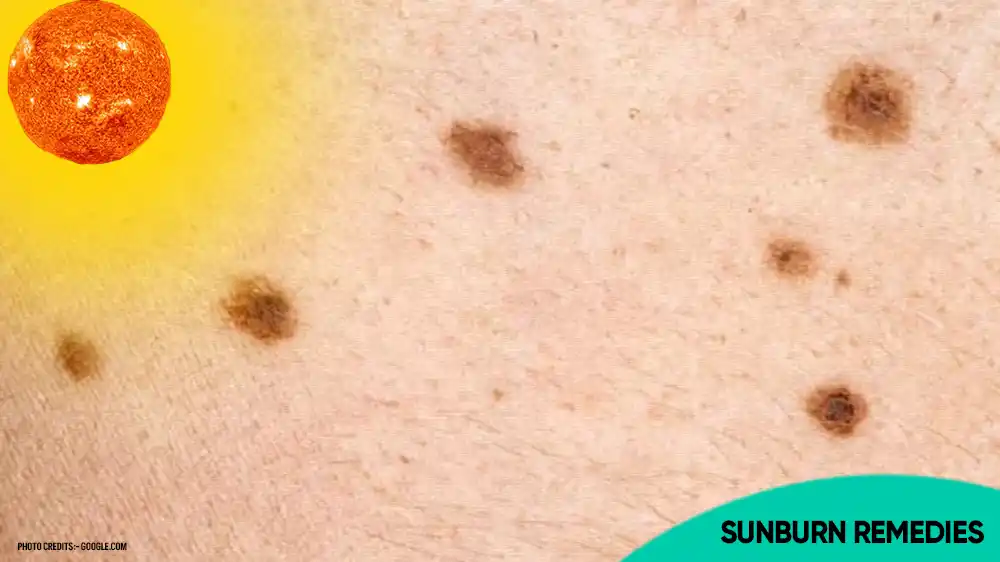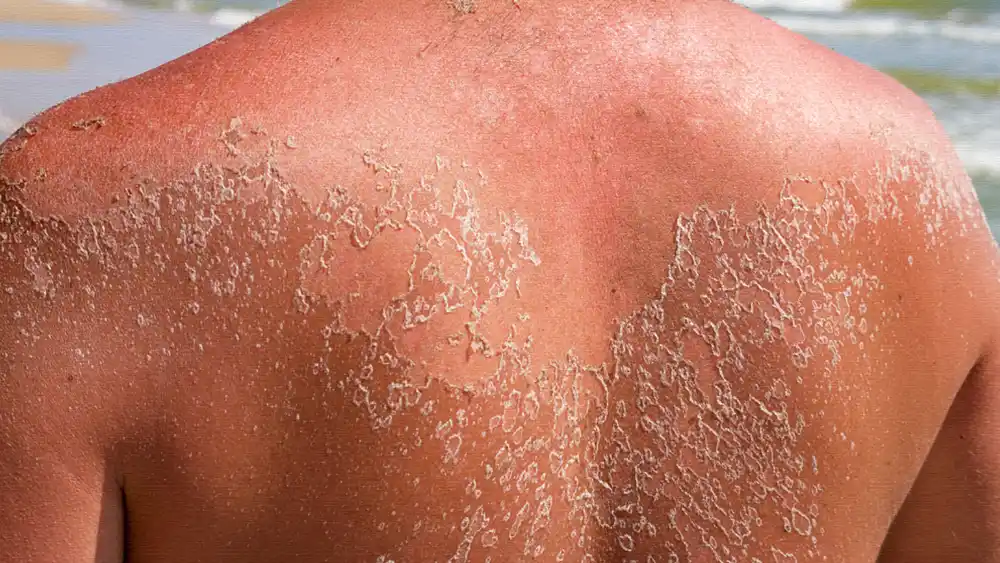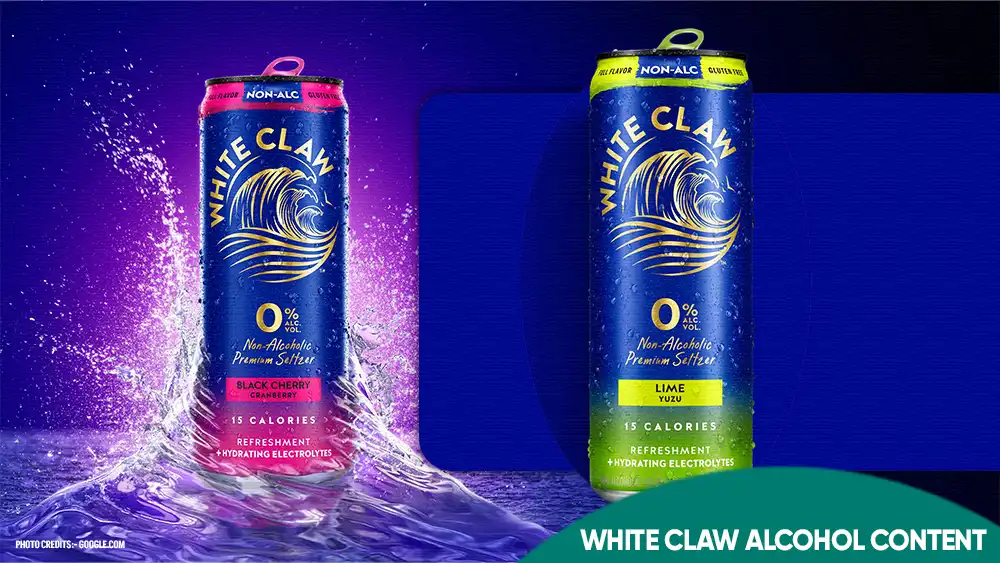
HEALTH BLOG
Sunburn Remedies: Soothe Your Skin Naturally and Skin Cancer
-
 Rahul Priydarss
Rahul Priydarss - May 11, 2024
Discover effective sunburn remedies and learn about the link between sunburn and skin cancer in our comprehensive guide. From soothing natural treatments like aloe vera and oatmeal baths to over-the-counter medicines, we’ve got you covered. Understand the causes of sunburn and how to reduce your risk of skin cancer by practicing sun safety. Get answers to frequently asked questions and take steps to protect your skin for a healthier future. Don’t let sunburn ruin your day find relief and healing with our expert advice.
Introduction to Sunburn:
Sunburn is a skin condition resulting from overexposure to the sun ultraviolet (UV) radiation. It often manifests as reddened, inflamed skin, and in severe cases, blistering and peeling. UV radiation triggers reactions within skin cells, prompting the body’s inflammatory response. While sunburn is usually temporary, repeated exposure can lead to long-term skin damage and increase the risk of skin cancer. Preventative measures like sunscreen and protective clothing are crucial in avoiding sunburn and its associated risks.
What is Sunburn:
Sunburn is a condition that occurs when the skin is exposed to excessive ultraviolet (UV) radiation from the sun. This exposure can lead to redness, inflammation, and sometimes blistering or peeling of the skin. UV radiation damages the skin cells, triggering an inflammatory response as the body attempts to repair the damage. Sunburn is a common result of unprotected sun exposure and can vary in severity depending on factors like skin type, UV intensity, and duration of exposure. It serves as a warning sign of potential skin damage and increased risk of skin cancer, highlighting the importance of sun protection measures such as sunscreen, protective clothing, and seeking shade during peak sun hours.

Table of Contents
How to reduce the risk of skin cancer:
Sunburn itself does not directly cause cancer, but it is a sign of skin damage from exposure to ultraviolet (UV) radiation. However, repeated sunburns over time can increase the risk of developing skin cancer, particularly melanoma, basal cell carcinoma, and squamous cell carcinoma.
UV radiation damages the DNA in skin cells, which can lead to mutations that trigger the development of cancerous cells. While the body has mechanisms to repair this damage, excessive or prolonged exposure to UV radiation can overwhelm these repair mechanisms, increasing the likelihood of cancerous growth.
It’s important to note that not all skin cancers are directly linked to sunburn. Some skin cancers may develop from cumulative sun exposure over time, even without experiencing sunburn. However, sunburn, particularly during childhood or adolescence, can significantly increase the risk of developing skin cancer later in life.
To reduce the risk of skin cancer:
- Practice sun safety by avoiding prolonged exposure to the sun, especially during peak UV hours (10 a.m. to 4 p.m.).
- Use sunscreen with a high sun protection factor (SPF) and reapply it regularly, especially after swimming or sweating.
- Wear protective clothing, including hats, sunglasses, and long-sleeved shirts, when outdoors.
- Seek shade whenever possible, especially during midday hours when the sun’s rays are strongest.
- Perform regular skin self-exams and see a dermatologist for annual skin checks, especially if you have a history of sunburn or skin cancer.
Causes of Sunburn:
Sunburn is primarily caused by overexposure to ultraviolet (UV) radiation from the sun. UV radiation consists of different types, including UVA and UVB rays, which penetrate the Earth’s atmosphere and reach the skin’s surface. When the skin is exposed to excessive UV radiation, it damages the DNA in skin cells, triggering a series of reactions that lead to inflammation and redness, characteristic of sunburn.
Several factors can influence the severity of sunburn.
Intensity of UV Radiation: UV radiation is strongest during midday when the sun is at its highest point in the sky. Exposure during this time increases the risk of sunburn.
Duration of Exposure: The longer the skin is exposed to UV radiation without protection, the greater the risk of sunburn.
Skin Type: People with fair skin are more susceptible to sunburn because they have less melanin, the pigment that provides some protection against UV radiation.
Geographical Location: Sunburn risk is higher in regions closer to the equator, where UV radiation is more intense.
Altitude: UV radiation increases with altitude, so sunburn risk is higher in mountainous regions.
Reflective Surfaces: Surfaces like water, sand, and snow can reflect UV radiation, increasing exposure and the risk of sunburn.
Symptoms of Sunburn:
Symptoms of sunburn typically appear within a few hours after exposure to ultraviolet (UV) radiation from the sun and can worsen over the next 24-48 hours. Common symptoms include.
Redness: The affected skin becomes red or pink, indicating inflammation.
Pain and Tenderness: Sunburned skin often feels hot, tender, and painful to the touch.
Swelling: Inflammation caused by sunburn can lead to swelling in the affected area.
Blistering: Severe sunburn can cause blisters to form on the skin, filled with fluid.
Itching: Sunburned skin may feel itchy as it begins to heal.
Peeling: As the sunburned skin starts to heal, it may peel, revealing new skin underneath.
Headache, Fever, and Nausea: In cases of severe sunburn, individuals may experience headache, fever, and nausea, indicating sun poisoning or sunstroke.

Importance of Treating Sunburn:
Overall, treating sunburn is essential for relieving discomfort, preventing complications, promoting healing, and protecting the skin from long-term damage. It’s important to start treatment as soon as possible after sun exposure to maximize its effectiveness and ensure the best possible outcome.
Treating sunburn is crucial for several reasons.
Alleviating Discomfort: Sunburn can cause pain, tenderness, and itching, significantly impacting quality of life. Treating sunburn promptly with cooling compresses, moisturizers, and over-the-counter pain relievers can help alleviate these symptoms and improve comfort.
Preventing Complications: Severe sunburns can lead to complications such as blistering, infection, and dehydration. Proper treatment can help prevent these complications from occurring or worsening, reducing the risk of further discomfort and health issues.
Promoting Healing: Sunburn damages the skin, and proper treatment can facilitate healing. Moisturizing creams and lotions can help soothe the skin and promote the regeneration of healthy skin cells. Keeping the skin hydrated also aids in the healing process.
Minimizing Peeling: Sunburned skin often peels as it heals, which can be unsightly and uncomfortable. Proper treatment can help minimize peeling and encourage the skin to heal more smoothly.
Preventing Long-Term Damage: Sunburn is a sign of skin damage from excessive UV exposure. Treating sunburn and taking steps to protect the skin from further sun exposure can help prevent long-term damage such as premature aging, wrinkles, and an increased risk of skin cancer.
Maintaining Skin Health: Sunburn can compromise the skin’s barrier function, making it more susceptible to environmental aggressors and irritants. Treating sunburn helps maintain the skin’s health and integrity, reducing the risk of further damage and promoting overall skin health.
Natural Remedies for Sunburn:
Several natural remedies can help alleviate the discomfort and promote healing of sunburn.
Cool Compresses: Applying cool, damp compresses to the sunburned area can help soothe the skin and reduce inflammation. Use a clean cloth soaked in cool water and gently apply it to the affected area for 15-20 minutes several times a day.
Aloe Vera: Aloe vera has anti-inflammatory and moisturizing properties that can help soothe sunburned skin and promote healing. Apply pure aloe vera gel directly from the plant or a commercially available gel to the affected area several times a day.
Oatmeal Bath: Taking a cool bath with colloidal oatmeal can help relieve sunburn discomfort and itching. Add powdered oatmeal to cool bathwater and soak in it for 15-20 minutes.
Hydration: Sunburn can lead to dehydration, so it’s essential to drink plenty of water to stay hydrated. Aim to drink at least eight glasses of water a day, and consider drinking electrolyte-rich fluids like coconut water to replenish lost nutrients.
Cucumber: Cucumber has cooling and anti-inflammatory properties that can help soothe sunburned skin. Slice a chilled cucumber and apply the slices directly to the affected area or blend the cucumber to make a soothing paste.
Coconut Oil: Coconut oil has moisturizing properties that can help hydrate sunburned skin and reduce inflammation. Apply virgin coconut oil gently to the affected area several times a day.
Green Tea: Green tea contains antioxidants and anti-inflammatory compounds that can help reduce sunburn inflammation and promote healing. Brew green tea, allow it to cool, and apply it to the sunburned skin using a clean cloth or spray bottle.
Honey: Honey has antimicrobial and anti-inflammatory properties that can help soothe sunburned skin and promote healing. Apply a thin layer of raw honey to the affected area and leave it on for 15-20 minutes before rinsing off with cool water.
Over-the-Counter Medicine:
Several over-the-counter (OTC) medicines can help alleviate the symptoms of sunburn.
Pain Relievers: Nonsteroidal anti-inflammatory drugs (NSAIDs) such as ibuprofen (Advil, Motrin IB) or naproxen (Aleve) can help reduce pain, inflammation, and discomfort associated with sunburn.
Topical Analgesics: Creams, gels, or sprays containing ingredients like lidocaine or benzocaine can provide temporary relief from sunburn pain and discomfort by numbing the affected area.
Hydrocortisone Cream: Over-the-counter hydrocortisone cream can help reduce inflammation and itching associated with sunburn. Apply it sparingly to the affected area according to the product instructions.
Aloe Vera Gel: While aloe vera gel is often available as a natural remedy, it is also available in OTC preparations. Look for aloe vera gels that contain a high percentage of pure aloe vera and apply as directed for soothing relief.
Moisturizing Creams/Lotions: OTC moisturizers containing ingredients like aloe vera, shea butter, or glycerin can help hydrate and soothe sunburned skin, promoting healing and reducing peeling.
Antihistamines: If sunburn is accompanied by itching or allergic reactions, OTC antihistamines such as diphenhydramine (Benadryl) can help relieve symptoms. However, antihistamines may cause drowsiness, so use caution when taking them.
Blister Bandages: For sunburns that result in blisters, OTC blister bandages or hydrocolloid dressings can help protect the affected area and promote healing.
Oral Rehydration Solutions: Sunburn can lead to dehydration, so OTC oral rehydration solutions containing electrolytes can help replenish fluids and minerals lost through sweating.
FAQs about Sunburn Remedies:
A1: Severe sunburn can lead to long-term skin damage and increase the risk of skin cancer.
A2: Mild sunburn typically heals within a few days to a week, while more severe cases may take longer.
A3: It’s best to avoid popping sunburn blisters, as this can increase the risk of infection.
A4: It’s best to avoid applying makeup to sunburned skin, as this can further irritate the area.
A5: If you experience fever or chills along with sunburn symptoms, seek medical attention immediately.
-Please remember, to always consult with healthcare professionals or Doctors for personalised advice related to medical conditions.
Conclusion:
Sunburn can be effectively managed with a variety of remedies and preventive measures outlined in our guide. By understanding the causes, symptoms, and risks associated with sunburn and skin cancer, you can take proactive steps to protect your skin and promote healing. Whether opting for natural remedies or over-the-counter treatments, prioritize sun safety to ensure a healthier future for your skin.




